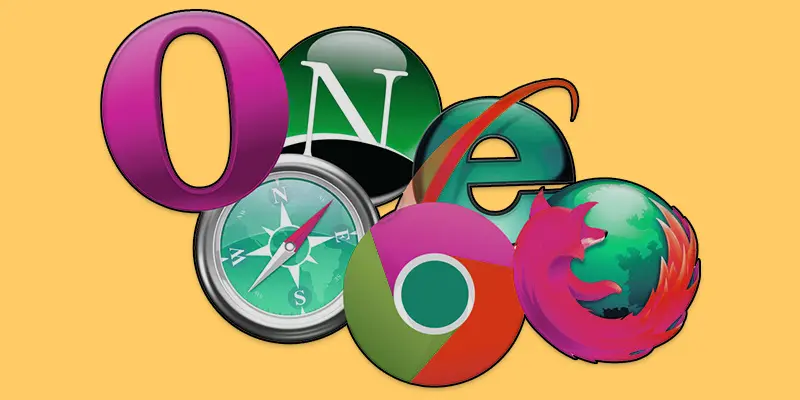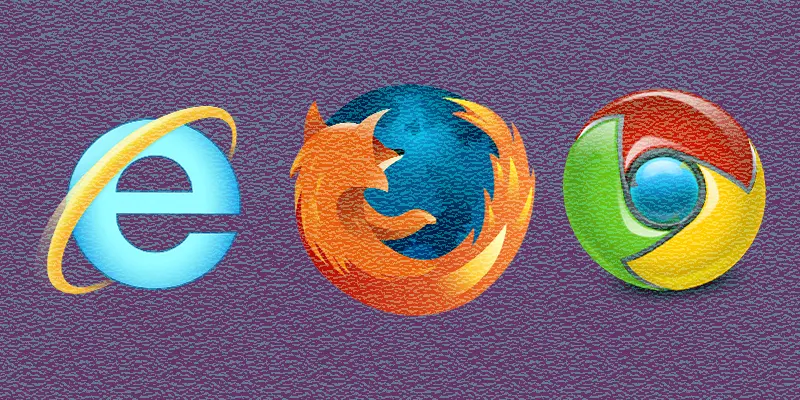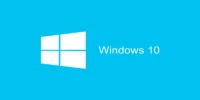Web Browser Definition, Popular Types, History, and Key Features
Published: 26 Jan 2025
What is the Web Browser?
The software program that enables you to access and browse the internet is called a web browser. It takes you to websites, displays images, videos, and text, and allows you to interact with online content. Web browsers like Chrome, Firefox, and Safari are widely used.
When you type a website address or search term, the browser connects to the internet to find and display the information you’re looking for. It acts as a bridge between you and the vast online world, making it easy to find answers, watch videos, or stay connected.
Examples of Web Browser
Here are some popular examples of web browsers:
- Google Chrome: Fast and widely used browser.
- Mozilla Firefox: Known for privacy and customization.
- Safari: Default browser for Apple devices.
- Microsoft Edge: Built-in browser for Windows.
- Opera: Features a built-in ad blocker and VPN.
- Brave: Focuses on privacy and blocks ads by default.
Web Browser Definition
An application called a web browser is used to view and access websites on the internet. It helps you search for information, interact with online content, and navigate between different web pages.
How does a web browser work?
A web browser works by sending your requested URL to a web server, which responds with the webpage’s data. The browser then processes this data to display the content and updates it as you interact with the page.
- User Enters URL: You type a website address (URL) or search term into the browser’s address bar.
- Browser Sends Request: To retrieve the webpage’s contents, the browser makes a request to a web server.
- Server Responds: The web server sends back the requested data, which includes HTML, CSS, and JavaScript files.
- Browser Processes Data: The browser reads and interprets the HTML to display the structure, CSS for design, and JavaScript for interactive features.
- Displays Webpage: The browser combines all elements and displays the webpage on your screen.
- Continues to Update: As you interact (click, scroll), the browser keeps sending and receiving data to keep the page updated.
Web Browser History
The history of the web browser started in the early 1990s with the creation of the first browser, WorldWideWeb, by Tim Berners-Lee. It allowed people to view text-based websites and link to other pages.
In 1993, Mosaic, the first graphical browser, made it easier to view images and text together, helping the web grow. Later, Netscape Navigator became popular in the mid-90s, followed by Internet Explorer from Microsoft, which became the default browser for Windows. Today, browsers like Google Chrome, Mozilla Firefox, and Safari dominate the market, offering faster speeds and more features.

Types of Web Browser
The web browser has several types, each offering unique features and functions to enhance the browsing experience.
Google Chrome
Google developed Chrome, a quick and well-liked web browser. It is known for its speed, simplicity, and security features. Chrome allows users to easily search the web, browse websites, and use extensions to customize their experience. It also syncs across devices, so you can access your bookmarks and history from any device.
Mozilla Firefox
The web browser Mozilla Firefox is well-known for emphasizing personalization and privacy. It allows users to block unwanted ads and trackers to protect their data. Firefox is also open-source, meaning anyone can contribute to its development. It’s a fast, reliable browser with many add-ons to personalize your browsing experience.
Safari
Apple created Safari as a web browser for its Macs, iPhones, and iPads. It is known for being fast, energy-efficient, and secure. Safari also offers features like a built-in ad blocker and integration with other Apple services. It’s a simple and user-friendly browser that focuses on privacy and smooth performance.
Microsoft Edge
Windows devices come pre-installed with Microsoft Edge, a web browser that was created by Microsoft. It is fast, secure, and designed to save battery life. Edge has features like a built-in reading mode, a shopping assistant, and privacy tools. It also syncs across devices, making browsing more convenient.
Opera
Opera stands out as a well-known web browser with unique features like a built-in ad blocker, free VPN, and energy-saving battery mode. It features a sidebar for easy access to social networking and messaging apps. Opera prioritizes security and privacy while providing a quick browsing experience. For customers who desire additional tools and flexibility, it’s a fantastic option.
Brave
Brave is a web browser that focuses on privacy and security by blocking ads and trackers automatically. It allows users to browse faster and safer by preventing unwanted content from slowing down the experience. Brave also rewards users with cryptocurrency to view privacy-friendly ads. It’s a great choice for those who want to protect their data online.
Internet Explorer
Many people use Internet Explorer, a web browser created by Microsoft, to browse the internet. It was known for being the default browser on Windows for many years. However, it is now outdated and has been replaced by Microsoft Edge. While it was once popular, Internet Explorer is no longer supported by modern web standards.
Vivaldi
Vivaldi is a web browser that focuses on customization and flexibility. It allows you to change its appearance, organize tabs, and use many unique features according to your preferences. With its fast performance, Vivaldi offers a personalized browsing experience and is great for users who like to tweak settings. It’s free and built on the same technology as Google Chrome but with more options.
Tor Browser
Tor Browser is designed to protect your privacy by hiding your identity while browsing the internet. It makes it difficult for someone to monitor your activities by rerouting your connection through multiple servers. Tor is often used by people who need extra security or want to browse anonymously. It also helps access websites that are blocked or censored in some regions.
Netscape Navigator
Netscape Navigator was one of the first popular web browsers, released in the 1990s. It helped make the internet accessible by allowing users to view websites with images and text together. At its peak, it was widely used but eventually lost popularity to other browsers like Internet Explorer. Netscape’s technology helped shape the development of modern browsers.

Top 50 Popular Web Browsers You Should Know
Here’s a list of 50 popular web browsers, each offering unique features to enhance your browsing experience. From fast, privacy-focused browsers like Brave and Tor to widely used ones like Google Chrome and Safari, there’s a browser for every need. Whether you prioritize speed, security, or customization, this list has something for everyone.
- Google Chrome
- Mozilla Firefox
- Safari
- Microsoft Edge
- Opera
- Brave
- Internet Explorer
- Vivaldi
- Tor Browser
- Chromium
- UC Browser
- Maxthon
- SeaMonkey
- Pale Moon
- Epic Privacy Browser
- Yandex Browser
- DuckDuckGo Privacy Browser
- Slimjet
- Comodo Dragon
- SRWare Iron
- Midori
- Lynx
- QuteBrowser
- Falkon
- Waterfox
- K-Meleon
- Otter Browser
- Rekonq
- Lunascape
- Cent Browser
- IBM Web Browser
- Blisk
- 360 Browser
- Mooltipass
- Min
- Baidu Browser
- Chrome Beta
- Chromium OS
- Avant Browser
- Kiosk Browser
- Sleipnir
- Dolphin Browser
- Puffin Browser
- Webpositive
- Beaker Browser
- BrowserX
- Deepnet Explorer
- Torch Browser
- iCab
- Xombrero
Features of Web Browser
The web browser has many features, like tabs for opening multiple websites, bookmarks for saving favorite sites, and privacy mode for browsing without leaving a trace.
- Tabs: Tabs are a feature in web browsers that let you open multiple websites in the same window. Each website appears in its own tab, making it easy to switch between them without closing any pages. This helps you stay organized and browse more efficiently.
- Bookmarks: Bookmarks are a way to save your favorite websites for quick access later. Instead of typing the website’s address every time, you can click on the bookmark to visit the site instantly. It helps you easily find important pages you visit often.
- Privacy Mode: You can browse the web in Privacy Mode, commonly known as Incognito or Private Browsing, without storing your search results, cookies, or history. This means your browsing activity won’t appear in your browser history or on your device after you’re done. It helps keep your activity private from others who might use your device.
Web Browser Security
Web browser security refers to the features that protect your personal data and online activity while browsing the internet. Browsers include tools like encryption, which helps keep your information safe from hackers when visiting websites.
Browsers also block harmful sites, warn you about phishing attempts, and help you manage passwords securely. Keeping your browser up-to-date ensures it has the latest security features to protect against new threats.
Conclusion about Web Browser
A web browser is an essential tool for exploring the Internet. It enables you to browse websites, do informational searches, and engage with online material. Browsers make browsing more convenient and secure, with features like tabs, bookmarks, and privacy modes. By choosing the right browser and keeping it updated, you can have a safer and more efficient online experience.
FAQS – Web Browser: What is
A web browser is software that allows you to view websites, and Google is a search engine that helps you in finding information on the internet. A browser, like Chrome or Firefox, allows you to visit Google and other websites.
On a computer, a web browser is an application that lets you see and access websites. It helps you search the internet, watch videos, read articles, and interact with online content.
Web browser games are games that you can play directly in your web browser without needing to download anything. Reddit discussions often include recommendations and reviews of popular browser games.
To find out which web browser you’re using, check the browser’s menu or settings. For example, Chrome shows “Google Chrome” in the menu, Firefox shows “Mozilla Firefox,” and Safari shows “Safari.”
Browsers like Microsoft Edge and Opera are known for using less memory compared to others like Google Chrome. However, it depends on how many tabs and extensions you have open.

- Be Respectful
- Stay Relevant
- Stay Positive
- True Feedback
- Encourage Discussion
- Avoid Spamming
- No Fake News
- Don't Copy-Paste
- No Personal Attacks

- Be Respectful
- Stay Relevant
- Stay Positive
- True Feedback
- Encourage Discussion
- Avoid Spamming
- No Fake News
- Don't Copy-Paste
- No Personal Attacks





